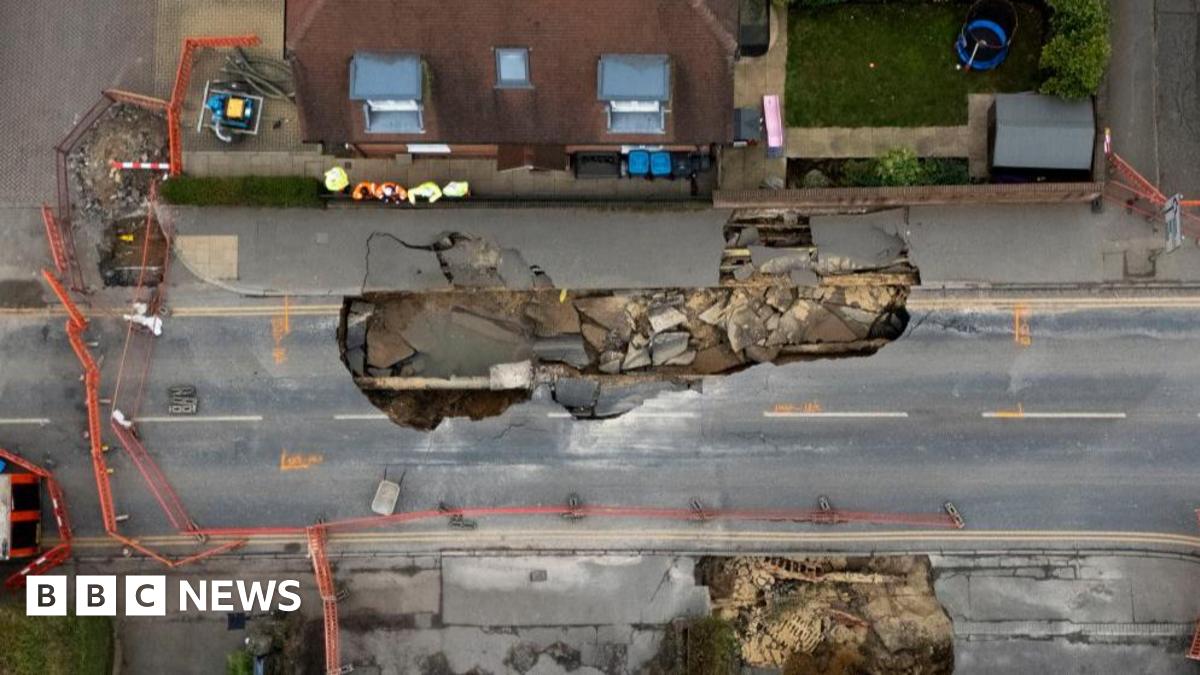What is a sinkhole and how are they formed?

Sinkholes can appear for many different reasons – it is often due to the geology but human factors can also be a cause.
One of the most common reasons for a sinkhole is when rocks like limestone or chalk break down. This happens because carbon dioxide from the air dissolves in rainwater to form carbonic acid – this then percolates through the rock and reacts with it, causing it to dissolve.
Sometimes this process can happen gradually, where the depression becomes larger over time.
In other instances, the limestone sits below another layer of rock, which means that as it gets dissolved there are no immediate signs at the surface.
The overlying rock, sometimes clay or sandstone, will then suddenly collapse into the depression beneath – called a ‘collapse sinkhole’.
These are most common in South Wales where sandstone rocks lie above caves in the limestone.
But human activities can also accelerate the formation of sinkholes or cause the ground to collapse in a similar way.
Andrew Farrant, British Geological Survey regional geologist for south-east England, suspects that is what has happened in Godstone and it is not a true sinkhole.
He said that one theory is that a burst water main has caused a sudden influx of water into the sandstone bed “flushing” the rock out the way.
Related
Youth football teams hold minute’s silence for 10-year-old Poppy Atkinson
Youth football teams and grassroots clubs across the country have held a minute’s silence at the start of their games to commemorate a 10-year-old girl who di
Girl’s death sparks minute’s silence at football matches nationwide
10-year-old Poppy Atkinson was killed when she was struck by a car during a training session at Kendal Rugby Club in Cumbria. Clubs from Leeds to London
Liverpool fans’ Uefa claim can be heard in England, judge…
The high court, sitting in Liverpool, heard Uefa had relied upon the principle that English courts will not inquire into the legality of actions by foreign gove
Alan Shearer’s Premier League predictions including Manchester United vs Arsenal
Caption: Alan Shearer?s Premier League predictions credit: Getty / Metro After some impressive results for English sides in Europe the focus is












